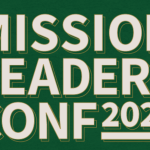The impact of disciple-making movement (DMM) strategy (and church-planting movement or CPM thinking) is both deep and wide. It’s deep because it tends to transform ministry in fundamental and foundational ways. It’s wide because it’s sweeping the planet. Think about it. Suppose we pick out an arbitrary milestone. Some call William Carey “the father of modern missions.” Suppose we pick out an arbitrary year — say, the year he left for India — 1793. Now let’s pick out an arbitrary year for the start-up of DMM strategies. (There is no one person… no one year, but…) Just for the sake of having an arbitrary milestone, let’s pick the year that David Garrison published Church-Planting Movements — 1999. (Why? Because it definitely chronicled some of the movements that we now associate with CPM/DMM.) During those 200 years, there were major shifts in world missions. But has ANY change resulted in such a sweeping and broad-based transition as the shift from traditional missionary methods to simple, reproducible DMM approaches?
 So with all that being said, can we try one more time to define DMM please? How do YOU explain it to supporters who make YOUR work possible?
So with all that being said, can we try one more time to define DMM please? How do YOU explain it to supporters who make YOUR work possible?
Let’s “bait the witness.” We’re going to give you 3 options. You’ll then have something to critique.
First, remember it all rests on God’s hands. We pray. God works. There is no magic bullet. There is no formula. That being said, what do we train workers to be or do?
The global movement, 24:14, has used these 7 ideas to define CPM/DMM:
1. Spirit-led
2. Every follower a multiplier
3. Peer accountability
4. Become a disciple worth multiplying
5. Here, near, and far-vision
6. Multiplying disciples, churches, leaders, and movements
7. Emphasizing biblical principles of multiplication
One well-known practitioner (Stan Parks) has identified CPM/DMM through this progression:
1. Read the Bible
2. Pray
3. Cast vision
4. Train people to go out among the lost
5. Go out among the lost
6. Form groups
7. Get coaching
This past week, we shared with two different groups that maybe we could sum it up with these 7 core concepts:
1. Prayer (especially prayer for the lost)
2. Bible reading (lifting up the Word as the primary authority)
3. Obedience (applying the Word, not just learning it)
4. Group multiplication
5. Discovery-based learning in those groups (the only approach that will avoid heresy, since it places authority on the Word and not a new teacher)
6. Peer accountability (in which participants set their own goals based on what they are discovering in the Word)
7. Sharing faith (maximizing fruit)
Now it’s YOUR turn. How would YOU define DMM. (And if it’s not too awkward, please tell us how you are involved in engaging with DMM, so we know something about your familiarity with the subject. Feel free to write anonymously if it’s too weird to say your name. Come on – somebody help us define this far-reaching, world-changing approach. Please.













DMM is the flavor of the day and I am grateful that some are becoming woke to it’s timeless principles. But if folks had been paying attention, they could have learned these things earlier, from Roland Allen in the 1800s for example, or Melvin Hodges in the 1900s.
My other observation is that two of these lists start with “read the Bible”. Since the majority of unreached people are in oral populations, how’s that supposed to work when they cannot read? To make the Bible central among oral communicators requires something more. Biblical storytelling has been shown to be highly effective in making God’s Word central to church multiplication efforts. Storytelling makes the Bible accessible to every believer. No matter their level of schooling they are able to understand it, internalize huge quantities of Scripture, and easily share it with others.
Hi Paul. Thanks for reminding us of Roland Allen, Melvin Hodges, and let’s not forget George Patterson. They were all early prophets, weren’t they. But until 2000, there were still just a couple of dozen movements in the whole world. From 2000 to 2021, the number of movements jumped from a couple of dozen to over 1300. It’s definitely more than a new “flavor of the day,” brother. This is more like a revolution.
When we bullet-point the Bible, we mean “breathe it in,” regardless of how. For many, you’re right – that will be through orality. That’s included part and parcel in DMM approaches. MANY DMM practitioners are relying on storying in all forms. Thanks, though, for making sure we mentioned that!
I just want to echo Doug’s response to Paul’s original comment above. I think in many contexts we are seeing DMM take place with an appropriate emphasis on orality. Most apps used in DBS (Discovery Bible Study) groups now offer both the scripture passage and discussion questions in audio as well as in text. I’ve heard stories where DBS groups that weren’t really going anywhere quickly suddenly took off once they got access to the lessons in audio. So a big yes to the importance of orality and storytelling in many contexts AND to the role they can play in a DMM approach.
What is DMM? DMM is a unique, “good news” sharing method, bathed in prayer and directed by God’s Spirit, where individuals are invited to join a small group of people (six or less, ideally) where they can “discover for themselves” (rather than being told) what God’s Word says. Seeing for themselves: (1) who God is, (2) who we are, and (3) how God’s Word invites us to change attitudes and behaviors to walk with Him in a personal relationship, they learn to craft simple “I will” statements that start them on a process of transformation, a lifestyle of personal discipleship. As they discover truths, they are encouraged to share that with the people around them invite these people to form new groups. Thus the discovery process is spawned naturally and “native” through that individual’s network of friends. As a general rule, these new invitees are themselves “not yet found” individuals who discover for themselves what God’s Word says and how to naturally become a lifelong disciple and disciple-maker as they invite others to follow their example.